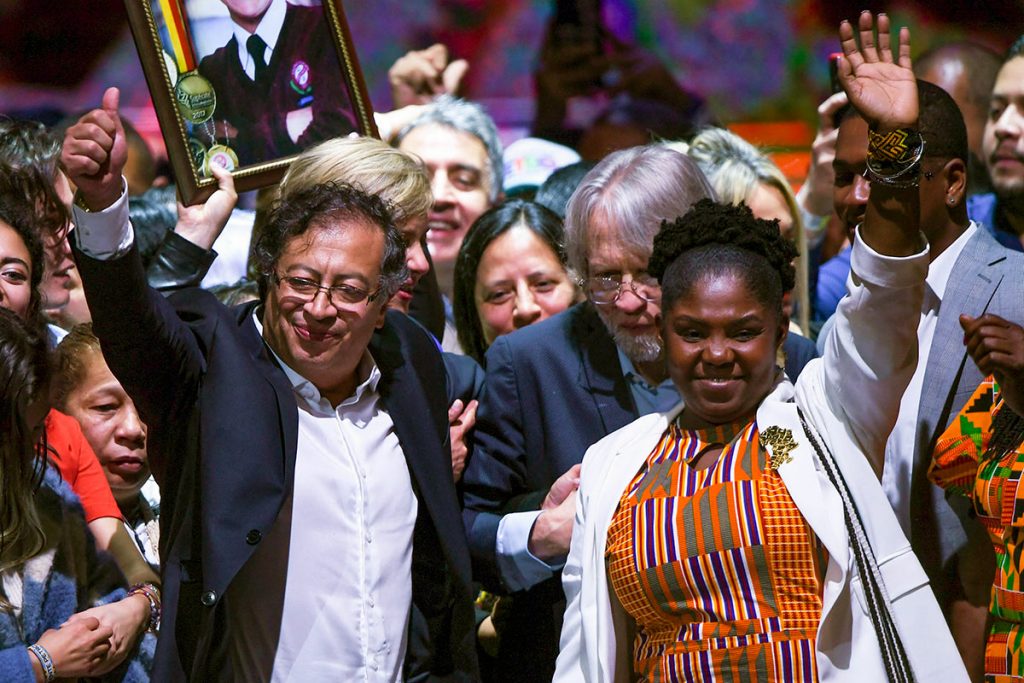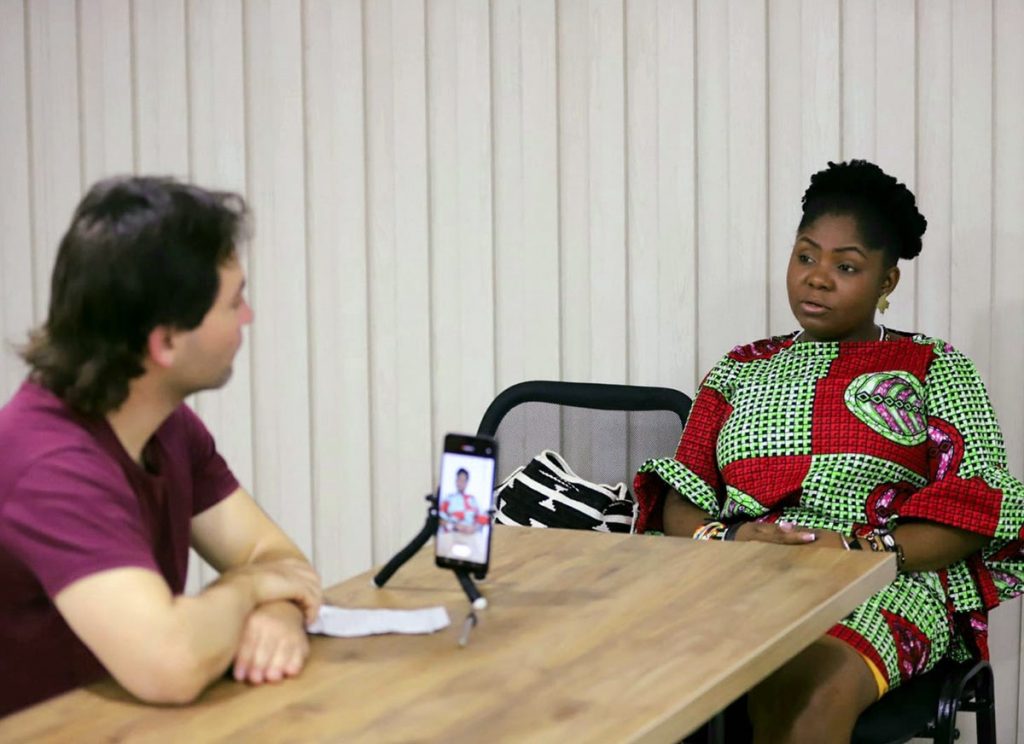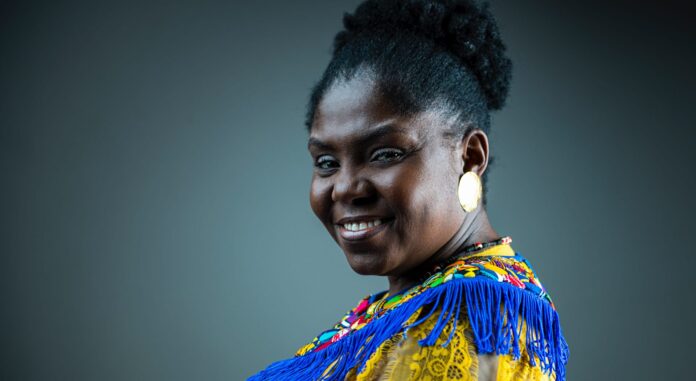It has been a long time since Latin American politics has seen a figure who has completely overturned the geometry of power and its class hegemony in the way that Francia Márquez has done. A woman, black, impoverished, displaced, subaltern, social leader, environmentalist and feminist, she will be the first African vice-president in the era that is being born in Colombia after breaking with 214 years of right-wing governments.
“I am because we are’ is the name of her movement, a translation of the African concept of ubuntu, which Francia describes in detail: ‘It is the philosophy that teaches us not to think of ourselves individually, that I am because you are, that we are if nature is; it is the commitment to redefine the value of life, so fractured in our country, always based on collective construction’. And in this communal cosmovision, the disruptive and symbolic character of his leadership can be seen: on his back resound the cries of his enslaved ancestors, the demands of the excluded communities, the dreams of – as he likes to say – ‘the nobodies and nobodies of Colombia’.
Francia was born in 1981 in La Toma, a village in the department of Cauca. The daughter of a midwife mother and an agro-miner father, at the age of 13 she began working as an artisanal miner and at 16 she became a mother for the first time. A year earlier, she had joined her community’s struggle against a megaproject to divert the Ovejas River, the starting point for what would become a long environmental activism against illegal mining and dispossession, for which she received the Goldman Prize in 2018.
In between, she suffered forced displacement due to paramilitary threats, became a lawyer while working as a domestic worker, lost her partner and survived an assassination attempt. “I want to be president”, she wrote on her networks in 2019 and almost nobody took her seriously, until last March when she won almost 800,000 votes in the primaries and Gustavo Petro appointed her as his running mate.
Days after a historic election, Francia welcomes us and dazzles us with her simplicity as the ever-warm Cali night falls. Dressed in one of her typical colourful outfits and with her friendly smile trying to overcome her undisguisable tiredness, the next vice-president of Colombia sits down, takes off her shoes and starts her captivating oratory.
Gerardo Szalkowicz: What are the main challenges you will face as a government, the most urgent issues to resolve?
Francia Márquez: If the road to arrive was not at all easy, being a government will be much more difficult, above all because we are proposing structural transformations. The first challenge is to continue efforts to achieve peace, recognising that many territories, many communities, continue to live in the midst of armed conflict and violence. Peace means guarantees of rights and opportunities and, above all, a path towards national reconciliation. Second, the issue of social justice. We are one of the most unequal and unequal countries on the planet, so eradicating hunger must be a priority. And third, the environmental crisis, moving from an extractivist economy to a sustainable economy, putting nature at the centre. This is a long-term project; 500 years of exclusion, marginalisation, and more than 60 years of armed conflict cannot be transformed in four years. We are going to lay the foundations for structural transformations that go beyond one term of government.
G.S: What is the significance of your coming to political power?
F.M: Our mere presence is already a break with political hegemony. This country has been governed by elite, privileged people who never believed that a woman like me could occupy this position. A black woman, impoverished, racialised, a victim of the armed conflict and who has resisted all the politics of death. This achievement is the accumulation of many struggles, of many people who died fighting, several generations who had to suffer violence. It is the continuity of a process that has been going on for more than 500 years. I am part of that history of resistance that began with my ancestors who were brought here in slavery.

G.S.: Taking into account where you come from and who you represent, what will your role be?
F.M: My social struggle will continue. The vice-presidency is not an end, it is a means, the end is to achieve peace, to achieve dignity, to put life at the centre. My role will be to help close the inequality gaps experienced by excluded sectors: women, young people, diverse communities, ethnic peoples, indigenous peoples, Afro-descendants, root communities, the forgotten regions. I would also like to work on peace and environmental issues, because that is what I have done, all my life I have confronted war and I have defended nature in the territories. I am a woman of social struggle, I am not a woman of the office, I hope to be with the people, building from the regions, from the peripheries. The president has decided that I will accompany him in other tasks, such as the creation of the Ministry of Equality, which will seek to attend to these excluded sectors and territories, where the state has never been present.
“The vice-presidency is not an end, it is a means, the end is to achieve peace, to achieve dignity, to put life at the centre.”
G.S.: The change of era that Colombia is experiencing has awakened great expectations in Latin America. How do you see the situation in the region and what initiatives should be promoted?
F.M: Latin America is one of the most impoverished regions. The Covid crisis, which highlighted the inequalities, obliges us to join together in a common bloc to strengthen the region’s economy, without looking so much at the ideological positions of each of us. A social economy that dignifies people’s lives. Secondly, Latin America has 40% of the planet’s biodiversity, which calls on us to take on a joint project from the different governments to tackle the environmental crisis. And this requires a transition from an extractivist economy to a sustainable economy. Third: the issue of peace involves resolving the drugs issue in Colombia and in the region. The legalisation of the coca leaf and marijuana is a path that we should take as a region. Bolivia has made some progress, as has Uruguay, but we need to make progress as a region on a drug policy that is different from the criminal policy we have had, a policy that addresses consumption as a health problem and also generates an economy for the peasantry. Another important issue is racism. Latin America has 200 million people of African descent, people who do not live in dignity, who have no guarantee of rights. After 213 years, I am the first black woman vice-president of this country and the second in Latin America. There is a challenge in the face of structural racism: the full guarantee of the political participation of ethnic, indigenous and black peoples.
G.S.: Colombia has always avoided Latin American integration processes, prioritising subordination to the US. How will the link with the region and the North be?
F.M: We must maintain relations with all Latin American countries, including with the US. It is not possible to engage in confrontation. It is necessary to move forward with the US in order to have a relationship in the face of the environmental crisis.
G.S.: In recent years there has been a great advance in Latin American feminism, in women’s struggles and dissidence, and your figure has awakened great enthusiasm. What can you contribute to them?
F.M.: The struggle from traditional feminism is like a Eurocentric vision, and we think from a communitarian feminism, a black feminism. White women fight not to be raped, black women have to fight not to be raped as women, not to be raped for being black and for being impoverished women. So the intersectionality of race, class and gender is very necessary. I went to Argentina when I was campaigning and the government didn’t stop me, they didn’t pay attention to me, they looked at me like I was a freak. Racism also cuts across progressivism and the left.
G.S: From that place of black, communitarian feminism, what message would you give to Latin American feminisms?
F.M: That it is not enough to be feminist if you are not anti-capitalist, if you are not anti-racist, if you are not anti-colonial. We have to build with real sisterhood, to build with men too, because we alone are not going to overthrow machismo and patriarchy. If men do not rethink their mandates of masculinity, it will be difficult for us to move forward.

G.S.: In the campaign you raised the slogan of “tasty living” (Vivir Sabroso), which the right wing manipulated and denigrated. What is the meaning of this idea-force?
F.M: Everyone gives it the interpretation they want. For us, living tasty means living without fear, walking calmly, generosity within our communities, solidarity, dignity. It is a commitment to life, to living in relationship with nature.
G.S.: What are your references and what figures do you draw inspiration from?
F.M: My grandmother, my mother, my sisters, the women of my community. On a global level, Aurora Vergara Figueroa, Angela Davis; in art and culture, Susana Baca, Nidia Gongora, Mercedes Sosa, Zully Murillo… all of them are great women.
G.S.: How would you define your political-ideological conception?
F.M: I consider myself anti-capitalist, although I know that we have made use of capitalism and as humanity we have generated a dependence on this system. However, this doesn’t mean that we don’t question it: this system has led the planet into an economic, human and environmental crisis. It is up to us to rethink this model of development and life.








